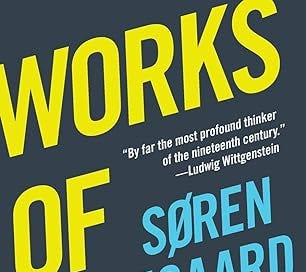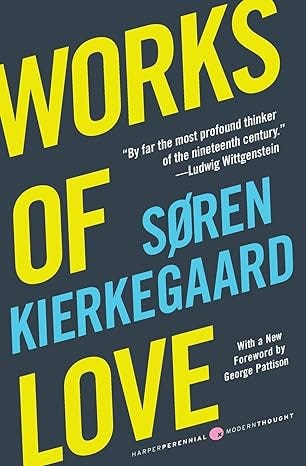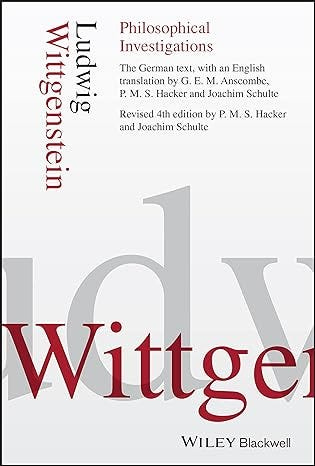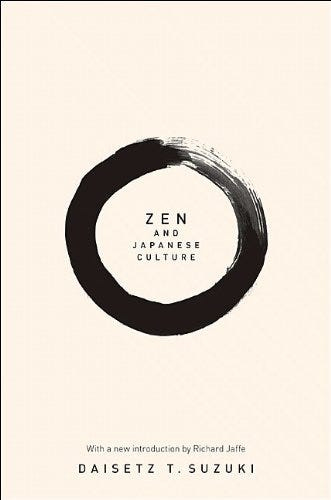These Books Changed the Course of My Life
Have you ever read a book that changed the entire course of your life? Well I have. In fact, there are three books that have dramatically shaped the story of my life. Who knows, maybe they will change your life too.
Works of Love by Soren Kierkegaard
As I was wandering through Barnes and Noble the year before starting university, I was making my way through the philosophy section and did what every reader is told NOT to do; I judged a book by its cover.
Works of Love stood out not only due to its cover (see above), but also from its title: Works of Love. I had never seen a book about love in anything besides a romance or self-help section. This sparked my interest and I read the back cover and preface; both of which were enough to convince me to buy the book. Little did I know the path that it would set me on.
To say that Kierkegaard is an unusual introduction to philosophy is an understatement. His writing style, not to mention his pseudonymous authorship, makes his work as confusing as it is deep.
However, what I got caught up in was its systematic treatment of “Love.” Love is such an important part of human life, yet I had never seen what one could consider an academic work on the subject. On top of taking my first philosophy class in university, this book steered me into living the examined life.
During my masters degree, I had the privilege of being a summer fellow at the Hong Kierkegaard Library at St. Olaf College in Northfield, Minnesota. I spent the summer reading and discussing Kierkegaard with some of the best Kierkegaard scholars in the world. The main research paper that I wrote during my time there would go on to serve as my writing sample that helped me get into my Ph.D. program. Needless to say, Kierkegaard has been central to my academic life since day one.
Philosophical Investigation by Ludwig Wittgenstein
Despite falling in love with philosophy early on at university, I was still largely focused on my studies in government and international relations. However, one book, Philosophical Investigations, would cause me to decide to do graduate work in philosophy.
Philosophical Investigations (PI) is a book about language; mainly setting out to understand the relationship between language and meaning. It is from this book that the famous phrase “Language Game” was born. Today, it is considered to be one of the most important philosophical works of the 20th century.
For me, PI connected my study of German (I have studied German since my 3rd year of High School and studied at Freie Universität Berlin during my Undergrad) with philosophy. The edition I found in the book store was a dual language edition; and I quickly got to work trying to read and understand the work in its native language.
What I found as a fount of new ideas about, among other things, language, meaning, and the practice of philosophy itself. I would go on to do a graduate seminar on just PI (yes, I spent an entire semester reading one book) as well as related courses in philosophy of language, analytic philosophy, and logic.
It will not surprise you that Philosophical Investigations played a central role in my dissertation.
Zen and Japanese Culture by D.T. Suzuki
The third, but no less influential, book that shaped my philosophical career is Zen and Japanese Culture by D.T. Suzuki. Works of Love got me into philosophy, Philosophical Investigations steered me to philosophy of language, and Zen and Japanese Culture brought me to Japanese philosophy.
In the last year of my undergraduate studies I was browsing through the college bookstore and saw this book. Being half Japanese, I have always been interested in Japanese things. However I had never seen a “philosophical” work related to Japan.
Now, I had taken a world philosophy class. However, that class mainly focused on classical Arabic, Chinese, and Indian philosophy. D.T. Suzuki’s introduction to the concept of Zen, its historical beginnings, and its influence on Japanese culture opened a new door of possibility for doing philosophical research.
During my masters, I would slowly work on Japanese philosophy reading books like An Inquiry Into The Good by Nishida Kitaro and The Kyoto School’s Takeover of Hegel by Peter Suares. This made me decide I would apply for a Ph.D. program that specializes in Asian Philosophy; one that I would get accepted to.
During my Ph.D. studies, I met scholars of Japanese philosophy from around the world. I attend numerous conferences, events, and summer fellowships on Japanese philosophy; some in Japan. It all culminated in becoming a research fellow at Kyoto University — home of the famous Kyoto School of philosophy — moving me to Kyoto where I still live to this day.
The Impact of Books
I hope you enjoyed hearing how books have shaped my life.
I want to know if books have shaped your life as well, and if so how. Please let me know in the comments below.
Thank you for reading. If you enjoyed it and would like to support me, there are several ways, all of which I would greatly appreciate.
Engage with this article by commenting and sharing it others who might be enjoy it. Its Free!
Already Subscriber? Gift a subscription to someone you think would like this article
All links are affiliate links to the editions that I own. Editions might vary outside of the U.S.







Oy! Wittgenstein in German? I can't even read him in English. Kudos to you.
My three books would be:
1. Plato's Collected Dialogues
2. Kant's Critique of Pure Reason
3. William James, The Varieties of Religious Experience
#3 was hard to pick! So many contenders for that spot.